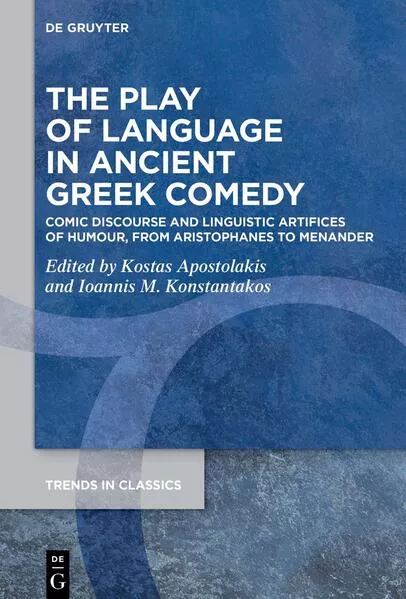
- Publikationen ca: 3
- Fragen & Antworten
Kostas E. Apostolakis
Kostas Apostolakis, University of Crete, Rethymno, Greece; Ioannis M. Konstantakos, National and Kapodistrian University of Athens, Athens, Greece.
The Play of Language in Ancient Greek Comedy
Ancient Greek comedy relied primarily on its text and words for the fulfilment of its humorous effects and aesthetic goals. In the wake of a rich tradition of previous scholarship, this volume explores a variety of linguistic materials and stylistic artifices exploited by the Greek comic poets, from vocabulary and figures of speech (metaphors, similes, rhyme) to types of joke, obscenity, and the mechanisms of parody.
The Play of Language in Ancient Greek Comedy
Ancient Greek comedy relied primarily on its text and words for the fulfilment of its humorous effects and aesthetic goals. In the wake of a rich tradition of previous scholarship, this volume explores a variety of linguistic materials and stylistic artifices exploited by the Greek comic poets, from vocabulary and figures of speech (metaphors, similes, rhyme) to types of joke, obscenity, and the mechanisms of parody.
The Play of Language in Ancient Greek Comedy
Ancient Greek comedy relied primarily on its text and words for the fulfilment of its humorous effects and aesthetic goals. In the wake of a rich tradition of previous scholarship, this volume explores a variety of linguistic materials and stylistic artifices exploited by the Greek comic poets, from vocabulary and figures of speech (metaphors, similes, rhyme) to types of joke, obscenity, and the mechanisms of parody.


